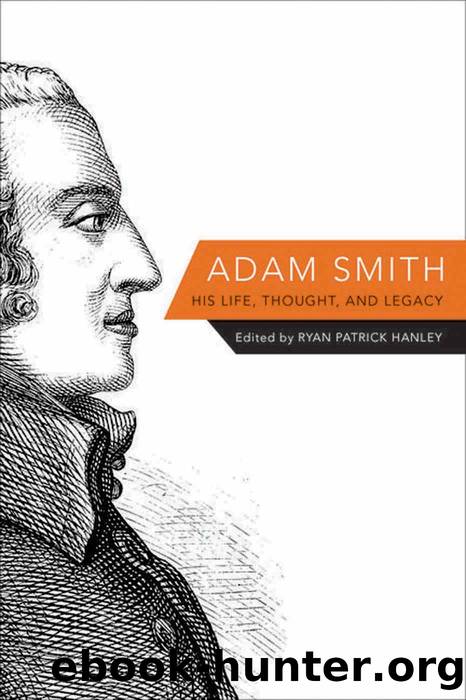Adam Smith by Adam Smith his life thought & legacy-Princeton University Press (2016 2015)

Author:Adam Smith his life, thought & legacy-Princeton University Press (2016 2015)
Language: eng
Format: epub
Publisher: Princeton University Press
Published: 2015-05-14T16:00:00+00:00
LIMITS OF THE MARKET MECHANISM: OMISSIONS
Even as the positive contributions of market processes and profit motives were being clarified and explicated in a pioneering way by Adam Smith, their negative sides were also becoming clearâto Smith himself. The balancing of the power and achievements of the market mechanism, on one side, against the limitations of that mechanism (particularly the dangers of relying exclusively on it), on the other, was quite central to Smithâs analysis of political economy. A balanced investigation remains critically important for development economics even in the contemporary world.
A number of socialist critics (including Karl Marx and also, to a great extent, John Stuart Mill), in the century following Smithâs own writings, would present the case for censuring and ultimately supplanting capitalism. What is, however, particularly interesting is that even to Smithâthe trailblazing exponent of the rationale of the market economyâthe huge limitations of relying entirely on the market economy and only on the profit motive were clear enough (he sought substantial supplementation of the market mechanism, though he would not endorse any proposal to supplant it). Indeed, while Smith took the market economy to be an essential requirement for successful development, he did not take the pure market mechanism to be a free-standing performer of excellence, nor did he take the profit motive to be all that is needed for good economic performance.
Even though the so-called welfare state that would emerge later on in Europe was far away from ideas current in Smithâs own time, he expressed with much clarity, in his various writings, his overwhelming concern about the fate of the poor and the disadvantaged, whose needs, he feared, would often not be met even by a very efficient market economy.
The most immediate failure of the market mechanism lies in omissions rather than commissionsâthe necessary pursuits that the market leaves undone. Smith was not only a defender of the role of the state in providing public services, such as education and poverty relief (but with greater freedom for the indigent than the Poor Laws of his day provided), but also deeply concerned about the inequality and poverty that might survive in an otherwise successful market economy. As it happens, Smith would also identify some errors of commission that the market mechanism would generate, but the basic limitations of the markets on which Smith particularly focused were matters of omission, rather than of commission.
Lack of clarity about that distinction between omission and commission has been responsible for some misdiagnosis of Smithâs assessment of the market mechanism, and the insights on development economics that can be obtained from Smithâs work. Consider, for example, Smithâs analysis of the need for state action to prevent hunger and famines. Adam Smithâs defense of private trade in food grains and criticism of prohibitory restrictions imposed by the state on free trade have often been interpreted as a proposition that state interference can only make hunger and starvation worse.
For example, when the governor of Bombay rejected in 1812 a proposal of government help
Download
This site does not store any files on its server. We only index and link to content provided by other sites. Please contact the content providers to delete copyright contents if any and email us, we'll remove relevant links or contents immediately.
Blood and Oil by Bradley Hope(1558)
Wandering in Strange Lands by Morgan Jerkins(1419)
Ambition and Desire: The Dangerous Life of Josephine Bonaparte by Kate Williams(1384)
Daniel Holmes: A Memoir From Malta's Prison: From a cage, on a rock, in a puddle... by Daniel Holmes(1330)
Twelve Caesars by Mary Beard(1313)
It Was All a Lie by Stuart Stevens;(1294)
The First Conspiracy by Brad Meltzer & Josh Mensch(1167)
What Really Happened: The Death of Hitler by Robert J. Hutchinson(1154)
London in the Twentieth Century by Jerry White(1145)
The Japanese by Christopher Harding(1130)
Time of the Magicians by Wolfram Eilenberger(1125)
Twilight of the Gods by Ian W. Toll(1117)
Cleopatra by Alberto Angela(1093)
A Woman by Sibilla Aleramo(1092)
Lenin: A Biography by Robert Service(1074)
John (Penguin Monarchs) by Nicholas Vincent(1068)
The Devil You Know by Charles M. Blow(1024)
Reading for Life by Philip Davis(1023)
The Life of William Faulkner by Carl Rollyson(982)
